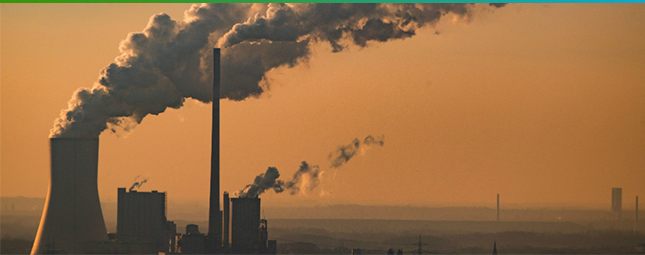
The world received a major wake-up call this week with the release of the Global Warming of 1.5°C Report from the Intergovernmental Panel on Climate Change (IPCC), which reports that severe impacts of global warming will happen much sooner than ever imagined.
This report emanates from the Paris Agreement of 2015, which focused on reducing the threat of climate change by limiting the maximum increase in average global temperature to a level below 2°C over pre-industrial levels, while also pursuing efforts to limit that increase closer to 1.5°C. Thereafter, the UN asked the IPCC to complete a special report detailing the impacts of a rise in average global temperature of 1.5°C while also specifying “pathways” to limit the increase to a maximum of 1.5°C – recognizing that 1.5°C is preferable to 2°C.
The report is indeed concerning. The authors note that warming from human activity has already approached 1°C over pre-industrial levels, and at the current pace will reach 1.5°C by 2040. Two pathways are explored – one in which global temperature is stabilized at or below 1.5°C, and another in which global temperature rises by more than 1.5°C around 2050, remains above 1.5°C for a few decades, and then falls below 1.5°C before 2100.
Notably, the second scenario involves the concept of “overshoot” – which increases the risk of surpassing “tipping points” beyond which certain environmental impacts cannot be reversed. Further, the longer that average global temperature remains above 1.5°C, the more we must rely on unproven technologies to remove CO2 from the air in the future in addition to changes to reduce emissions up front.
The report’s authors note that:
- There is “no definitive way to limit global temperature rise to 1.5°C.”
- Climate models predict “robust differences in regional climate characteristics” between the current level and an increase of 1.5°C, and between 1.5°C and 2°C.
- “Climate-related risks to health, livelihoods, food security, water supply, human security, and economic growth” are predicted to increase with a 1.5°C rise in temperature, and increase even further at 2°C.
- Global warming won’t be limited to 1.5°C or 2°C unless emissions-impacting transformations occur across multiple sectors (including agriculture).
- Meeting the temperature challenge will require “a rapid escalation in the current scale and pace of change” – but there is no historical precedent for the scale of the needed change.
There are, of course, strong parallels to the food waste challenge which LeanPath has been fighting for 15 years. As noted by FAO, global food waste contributes up to 8% of human-generated greenhouse gas emissions -- which is almost equal to the annual impact of global road transport emissions. Further, if ranked as a country, food waste would be the third largest emitter of greenhouse gas emissions behind the U.S. and China.
Food waste is integral to the climate challenge, and urgency is needed to address both.
The IPCC report notes that a “whole systems” approach is needed to stem global warming, encompassing “all relevant companies, industries and stakeholders.” Urgency is needed, and the food system is a key place to start. LeanPath has prevented more than 25 million pounds of food waste since 2014 alone, and we remain committed to leading change within the food system – through prevention – to limit global warming.
